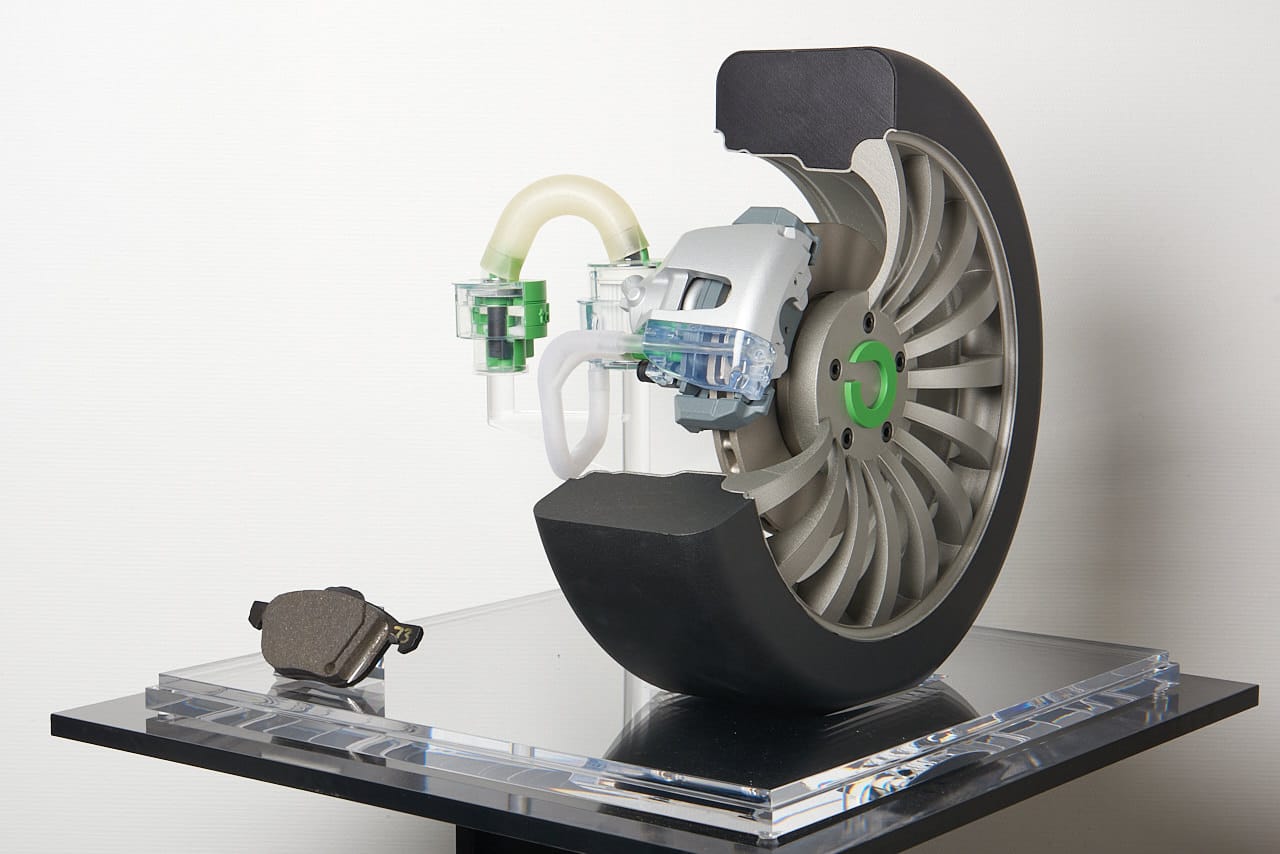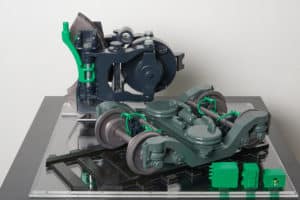Tallano Technologies: A Solution For Braking Systems’ Little-Known Pollution Problem
Paris-based company Tallano Technologies has pioneered an innovative system that captures fine particles emitted when vehicles brake, reducing air pollution. It’s a solution that is becoming particularly relevant as new regulation for light and heavy-duty vehicles has been approved in the European Union.

We know about the pollution that comes from drivers stepping on the gas, but what about from pressing on the brakes?
Science has documented the health damage from the fine particles coming from exhaust fumes, contributing in particular to respiratory and cardiovascular diseases. According to the most recent data from the European Environmental Agency (EEA), 253,000 people died prematurely because of pollution from fine particulate matters in 2021.
The European Union has been implementing increasingly stricter emission standards on the transportation industry. But there is indeed another source of fine-particle pollution coming from vehicles: their braking systems.
“What happens is that brake pads wear over time: that is the principle of friction, which allows the vehicle to slow down,” explains Jean-Louis Juchault, president of Tallano Technologies. “This process emits fine particles which threaten our health because of the composition of the friction material, the size of the particles, as they can end up directly in our lungs, and their shape, making them abrasive.”
Over 40 patents and one unique solution: TAMIC®
This observation led Christophe Rocca-Serra to found Tallano Technologies in 2012, with one goal: to develop a solution able to capture these fine particles. After 10 years of research and development, the Paris-based company, which now employs a dozen collaborators, has created TAMIC®. This unique innovation can be integrated inside the brake caliper and consists of an electronic control, suction and filtration system, which allows fine particles to be retained instead of being dispersed into the air.
The solution has been designed to be universal, adaptable for different modes of transport that use friction brakes (rail, light and heavy-duty vehicles). It is also easy-to-use, with no maintenance apart from changing the filter, which can be recycled.
 Railway model
Railway model
“We estimate that our system reduces fine particle emissions up to 85%,” says Jean-Louis Juchault, who took over as president of Tallano Technologies in June 2023. “While some other companies have worked on similar capture solutions, ours show the highest level of efficiency and performance.” This innovative spirit has allowed the company to be selected by the EIC (European Innovation Council) Scaling Club, which aims at boosting deep tech scale-ups, in the category “Smart Mobility.”
Tallano Technologies has based its business model on patents, issuing more than 40 in 12 different countries in Europe, Northern America and Asia. “Our strategy isn’t to become a manufacturer, as transportation safety is a highly regulated and capital-intensive sector, but rather develop the systems, patent them and then sell them to industrial actors which will compensate us via royalties.”
A new EU regulation on the way
In Europe, the implementation of the Euro 7 legislation, which was approved last March, will undoubtedly put Tallano Technologies’ solutions under the spotlight. In a world first, emissions from braking systems will be limited for manufacturers of light (2027) and heavy-duty vehicles (2030): 7 mg/km for cars powered by combustion engines and 3 mg/km for electric vehicles — then 3 mg/km for all from 2030. Caps for heavy-duty vehicles have yet to be announced.
“It was important for the regulation to be pushed this far, because we estimate that today braking systems emit 6 times more particles than exhaust pipes, about 30 mg/km against 5 mg/km,” says Jean-Louis Juchault.
The president of Tallano Technologies believes that automakers will look at a mix of solutions: “There is the use of regenerative braking like on electric vehicles and the improvement of brake pads’ friction material, but these will not completely eliminate the emissions of fine particles. Therefore, capture solutions such as TAMIC® have to be considered as well.”
Looking for industrial partners
To test its solutions in real conditions, the French company has developed several partnerships with railway operators, car manufacturers and equipment manufacturers in Europe and Asia. These include the country’s national state-owned railway company SNCF, for which Tallano Technologies retrofitted one wagon of the RER C with TAMIC® for two years and a half, as well as the city of Paris, to equip garbage collection trucks. “Our solution is particularly pertinent for these vehicles which are very heavy, brake a lot and operate in urban areas where people are more exposed to emissions of fine particles.”
After a first phase of research and a second of development and tests, the company is entering its third phase. “Our system is functional and answers a real need. Now we’re having discussions with equipment manufacturers to choose partners who will industrialize our solutions, like Akwel,” says Jean-Louis Juchault. “With the new legislation coming, it’s time for industrial actors of the sector to take action.”
Related
Trending


 Railway model
Railway model